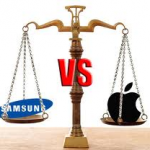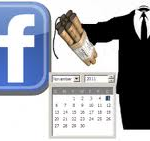 Los Angeles — Striving to outshine its rivals in the messaging world, social networking humongous Facebook adopted a novel strategy Tuesday on its mobile efforts debuted Facebook Messenger, a new mobile app for smartphones that lets you send and receive real-time messages with individual friends as well as small groups of friends, send photos, and privately share your location.
Los Angeles — Striving to outshine its rivals in the messaging world, social networking humongous Facebook adopted a novel strategy Tuesday on its mobile efforts debuted Facebook Messenger, a new mobile app for smartphones that lets you send and receive real-time messages with individual friends as well as small groups of friends, send photos, and privately share your location.
The app dubbed as “Facebook Messenger,” which the company states will be available today in the US and Canada for Android on Google’s Android Market and for the iPhone on Apple’s App Store, is an independently operated app — separate from Facebook’s regular mobile app.

“More and more of us depend on our phones to send and receive messages,” a Facebook spokesperson said in a blog post. “But it is not always straightforward to know the best way to reach someone on their phone. Should you send an email or text? Which will they check first? Did they even get your last message? We think messaging should be easier than that. You should be able to write a message, click ‘Send’ and know that you will reach the person right away.”
So, if your friend has the app, messages are conveyed to him or her via push notifications (you can choose to mute all conversations or specific ones temporarily or indefinitely). If he or she does not, then they are delivered via SMS, Facebook Chat, or Facebook Messages. You can thus use it to reach all of your friends – whether they’re on Facebook or in your phone contacts. All you have to do is type the person’s name and the message.
{japopup type=”iframe” content=images/stories/demo/2011/august/10fbbig.png” width=”1024″ height=”600″}

{/japopup}
Click to enlarge… (Image Credit: CNET)
“The Messenger app is an extension of Facebook’s existing messaging program, which permits two Facebook users to communicate within the Facebook platform, Messenger allows Facebook users to send text messages between phones, while still storing the conversation in a user’s messaging center on his or her individual Facebook page, so all your conversations are in one place, including your texts, chats, e-mails, and messages. Whether you’re on your phone or on the Web, you can see the full history of all your messages,” Lucy Zhang, Beluga co-founder and Facebook engineer, said in a post on Facebook’s blog.
Interestingly, the newly unleashed Messenger app is also suitable for group texting, enabling you select several Facebook contacts and send them all texts at once. If a FB user is logged into the new message app, it will show up there. If not, they get the message sent to them as an SMS, so long as they to have registered their phone with Facebook.
Moreover, users can sign in with their Facebook credentials to get access to existing chats and message threads from Facebook for communicating with them on the go. Included is group messaging, along with a component that lets users share photos and their location.
It is basically another intelligent move on Facebook’s part to lure users away from conventional forms of electronic communication–including open, standards-based platforms such as e-mail–instead pulling them further into Facebook’s proprietary platform.
In addition, the service is entirely mobile-focused, so it does not completely consolidates with Facebook Messages, which tries to route a message to a person using whatever channel Facebook thinks is most likely for you to get it fastest.
Dubbed “the modern messaging system” by Mark Zuckerberg, Messages squabbles all private communication that occurs between two Facebook users –whether that is an instant message via Facebook chat, or a private message using the traditional inbox — into one individual thread. Messages also came with an option to create a Facebook-based e-mail address.
More importantly, “When you are on the go, co-operating with a bunch of people can be difficult, especially if plans are altered at the last minute. With Messenger, you can quickly start a group discourse and message everyone at once,” says Zhang. “If you choose to add your location, the people you are messaging with can easily find each other on the map. You can also attach photos, so everyone else can see and comment on what you are looking at.”
The product stems from Facebook’s March acquisition of Beluga, a start-up established by three ex-Googlers. In fact, Beluga and Messenger, however, are very much alike — conceptually, at least, if not technologically. Nonetheless, this app is not replacing Beluga, according to Facebook.
{iframe width=”620″ height=”390″ align=”top”}http://www.youtube.com/embed/wcRipEHsA64{/iframe}


